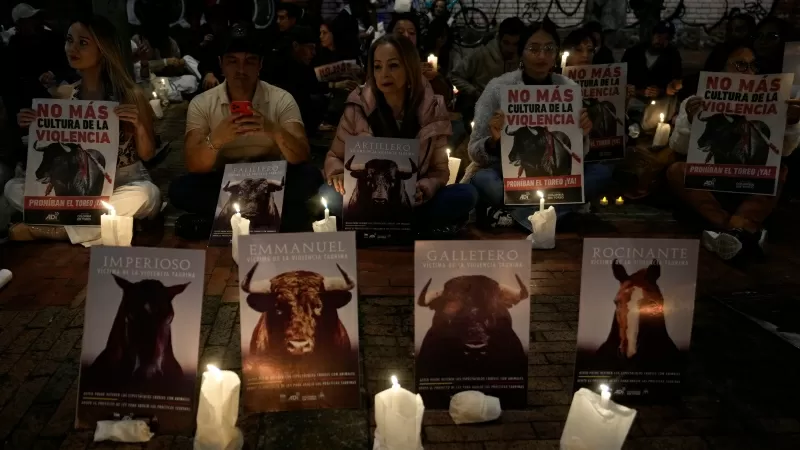Colombia’s Congress Votes to Ban Bullfights, Marking a Positive Step Towards Animal Welfare
In a historic move, Colombia’s congress voted on Tuesday to ban bullfights in the South American nation, putting an end to a centuries-old tradition that has long been a source of controversy and animal rights concerns.
The decision, which was met with cheers and applause from animal rights activists, marks a significant step towards promoting animal welfare in Colombia. Bullfighting, a practice that involves the torture and killing of bulls for entertainment, has been a deeply ingrained part of the country’s culture for centuries. However, with changing times and growing awareness about animal rights, the practice has faced increasing criticism and calls for its ban.
The ban, which was approved by a vote of 110-20, will come into effect in January 2019, giving bullfighting organizers and supporters time to adjust to the new law. This decision has been hailed by animal rights activists and organizations, who have been campaigning for years to end the cruel and inhumane practice.
Bullfighting has long been a source of controversy, with supporters arguing that it is a cultural tradition and a form of art, while opponents argue that it is a cruel and outdated practice that has no place in modern society. However, the ban on bullfighting in Colombia is a clear indication that the country is moving towards a more compassionate and humane society.
The decision to ban bullfighting was not an easy one, as it faced strong opposition from those who view it as an integral part of Colombia’s cultural heritage. However, the majority of congress members recognized the need to prioritize animal welfare over tradition and voted in favor of the ban.
This move by Colombia’s congress is a positive step towards promoting animal rights and ending animal cruelty. Bullfighting has been a source of immense suffering for bulls, who are subjected to physical and psychological torture in the name of entertainment. The ban will not only spare these animals from unnecessary pain and suffering but also send a strong message that animal welfare is a priority in Colombia.
The decision to ban bullfighting has also been welcomed by many Colombians, who believe that it is time to move away from outdated traditions and embrace a more compassionate and ethical society. This ban is a reflection of the changing attitudes towards animal welfare in Colombia, and it is a testament to the country’s progress towards a more humane future.
Bullfighting has been a part of Colombia’s cultural identity for centuries, inspiring famous songs and novels. However, it is important to recognize that traditions should not come at the cost of animal suffering. With the ban on bullfighting, Colombia is taking a stand for animal rights and setting an example for other countries where this practice is still prevalent.
The ban on bullfighting is not only a victory for animal rights but also a victory for humanity. It shows that as a society, we are evolving and becoming more aware of the impact of our actions on animals. This decision will also have a positive impact on tourism, as many tourists are now choosing to boycott countries that still allow bullfighting.
In conclusion, the decision by Colombia’s congress to ban bullfighting is a significant step towards promoting animal welfare and creating a more compassionate society. It is a clear message that animal cruelty will not be tolerated, and that traditions should not come at the cost of animal suffering. This ban is a positive step towards a more ethical and humane future for Colombia, and it is a cause for celebration for all those who have been fighting for animal rights.

